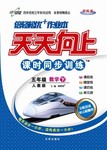Young children from poor families are more likely to consume junk food and fizzy drinks(汽水) than their richer companions. A study of 1,800 four- and five-year-olds found more than half of those from poor backgrounds drank at least one a week, compared to just four in ten oofy kids. They also drank less milk and consumed more fruit juice which is also linked to child obesity (肥胖) caused by high sugar intake(摄取量).
The phenomenon also relates to children who spend more than two hours a day in front of a TV or playing computer games—whatever their social circumstances. A companion study also found children from poor families were more likely to eat chips, sweets and chocolate. Professor Kate Storey said, “when you are looking at that age group, and such a large percentage of very young kids in the study are consuming a large amount of soda(苏打汽水),it is quite concerning. ”
The researchers carried out the study by surveying the parents of their participants to find out their dietary habits. Professor Storey said, “If you are drinking a lot of soda and fruit juice, they can displace(取代)consumption of water and milk, which are important not just for ending thirst, but for developing healthy bones and teeth, and health and wellness in general.”
Co-researcher Dr John Spence said, “Dietary behavior and intake patterns are influenced heavily by what happens in the first few years with children, and they maintain those patterns throughout childhood and into adolescence(青少年时期).” In addition to basic health education, this study identifies a need in how we are dealing with poverty and recognizing there is more to poverty than simply the number of dollars people have.
Professor Storey said that shows how education can make a difference and lead to healthier eating habits, regardless of what is happening at home. “Many families live in places that might not be very healthy for them and, as a result, they make unhealthy food choices. You can start making a difference in different places. It calls for action in multiple settings, schools and communities, for example. That light-bulb moment can happen in a variety of places,” Professor Storey added.
1.What does the underlined word “oofy” mean in Para.1?
A. Wealthy. B. Healthy. C. Fat D. Weak.
2.According to the passage, Professor Storey thinks it helpful for children ______.
A. to drink more coffee B. to drink more milk
C. to drink more soda D. to drink more fruit juice
3. According to Dr John Spence, children’s habits in the early stage of life can even affect _____.
A. their attitude towards life
B. their living patterns of youth
C. health in their old age
D. living quality of all their life
4.Professor Storey considers that healthier eating habits can be _____.
A. finally determined by parents’ life habits
B. gently changed by parents’ life habits
C. suddenly changed by family situation
D. gradually changed by education
5.What’s the main idea of the passage?
A. Young people like eating junk food.
B. Junk food is bad for both young children and adults.
C. Children from poor families are more likely to eat junk food.
D. Junk food causes more and more children to become overweight.
 赢在课堂名师课时计划系列答案
赢在课堂名师课时计划系列答案 天天向上课时同步训练系列答案
天天向上课时同步训练系列答案
